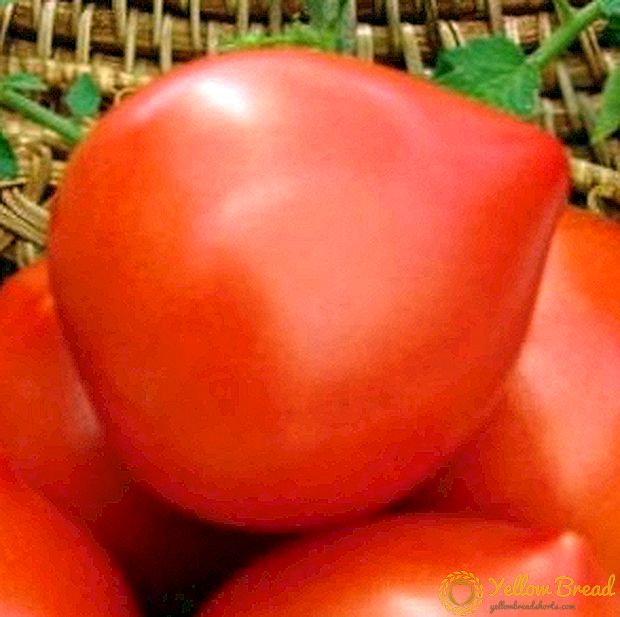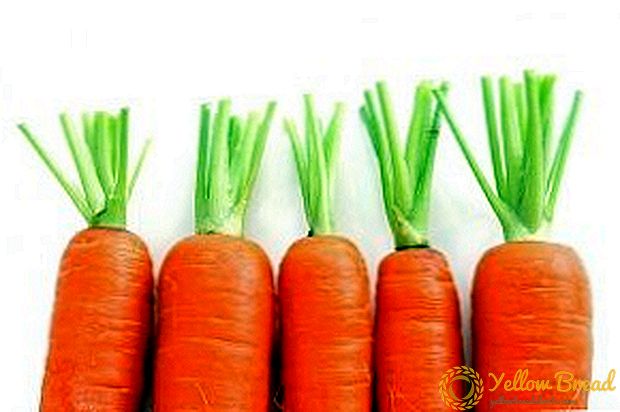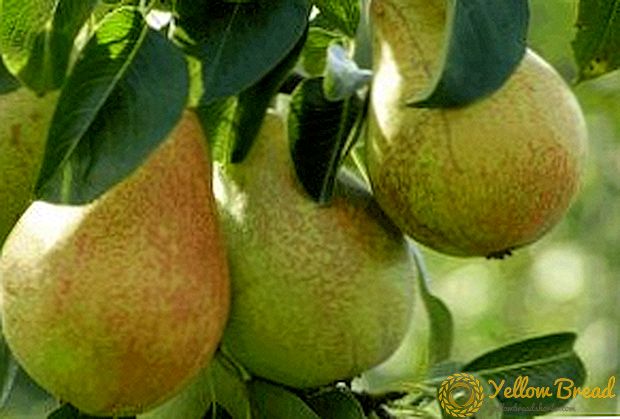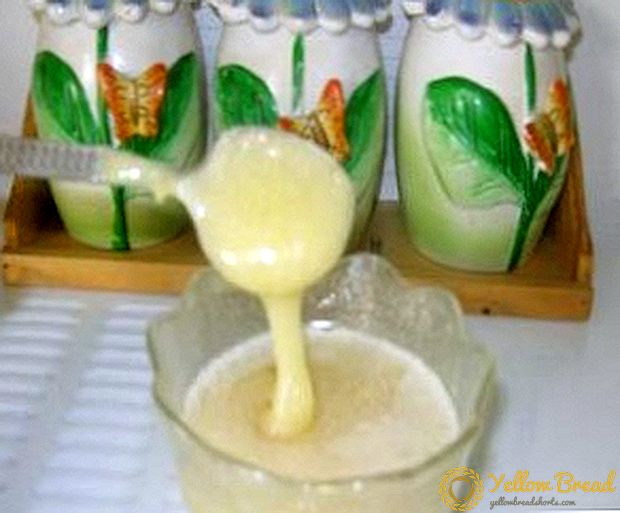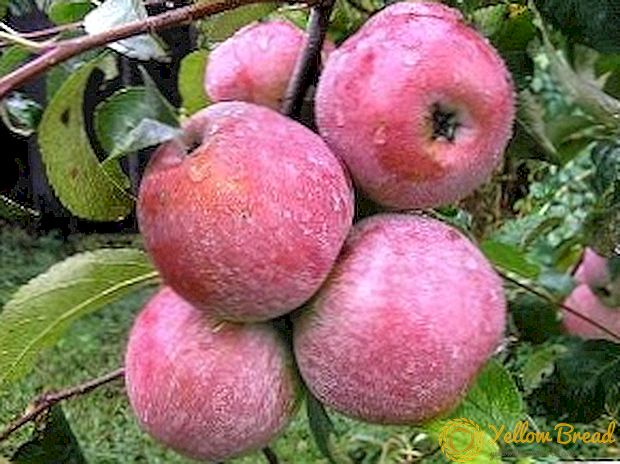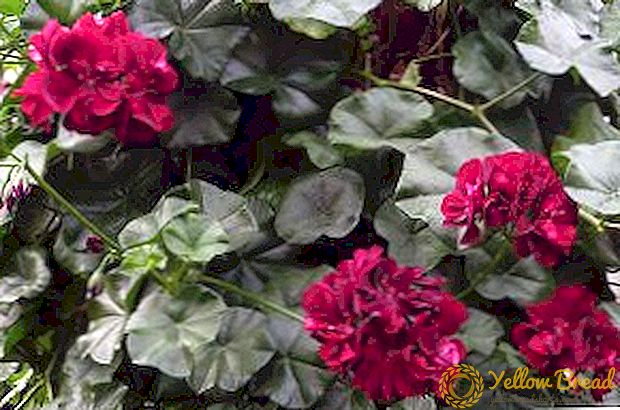
Potato varieties "Ramona" refers to one of the time-tested, well-established varieties of Dutch selection.
Delivered to Russia in the early 90s of the last century, farmers and amateur potato growers were fond of taste, excellent preservation and presentable appearance of tubers.
general information
Originator varieties "Ramona" ("Romano") Dutch seed company AGRICO.
In 1994, the variety "Ramona" received code №9552996 in the State Register of the Russian Federationgiving the right to sell seeds in the country. Recommended for cultivation in the Central, Volga-Vyatka, Southern regions, in the Perm region, in the Far East.
Potato "Ramona": description of the variety, photo
 "Ramona" mid-season variety. The yield of significant marketable products through 80-100 days after landing. Withering tops occurs at 115-130 days.
"Ramona" mid-season variety. The yield of significant marketable products through 80-100 days after landing. Withering tops occurs at 115-130 days.
The ripening terms depend on the quality of planting material, climatic conditions of the cultivated area.
The bush is erect, sprawling and tall. Quickly formed. Faceliness is high. Stems are medium high. The flowers are red or light purple. Corolla reddish-purple, medium-sized.
Light pink tubers of the correct rounded oval form, large and medium in size. The average weight of a tuber is 70-90 g. One bush brings 16-20 potatoes, with a total weight of 7-8 kg. Commodity yield 90-94%.
Dense, strong peel of light red color. With a small amount of precipitation, it acquires a lighter shade. The eyes are immersed in the body of the tuber to the average depth. The eyes are small. The flesh is white with a creamy tinge, dense texture.
The potato variety “Ramona” is represented on these photos:



Economic characteristics
General characteristics of the potato variety "Ramona":
- Appointment varieties of potatoes "Ramona" table. Versatile in cooking. The flesh is friable, not darkening after baking, boiling, roasting. Evaluation of taste in the Register is 4.6-4.7 points on a five-point scale.
- The dry matter content is high 16-18%.
- The content in the potato variety “Romana” of starch exceeds the norm - 14-17%.
- High degree of keeping quality. Long does not germinate during storage.Forms 6-8 shoots.
- Resistant to damage during cleaning, transportation, storage.
Value and disadvantages
Differs in an excellent trade dress, fruit uniformity. Undemanding to soil composition. It tolerates drought.
In the southern regions, the variety “Ramona” is capable of producing crops twice. Suitable for the preparation of semi-finished products, chips, french fries.
Disease resistance
- Susceptible to the golden potato nematode.
- Shows high resistance to the Colorado potato beetle.
- Immunity to potato cancer.
- Very high resistance to virus A, foliage twisting.
- Resistant to Yn virus.
- Medium resistance to tuber phytophthora, fusarium,
- Weakly resistant to leaf curl virus, common scab.
Features agrotehnika
Like most Dutch varieties, prone to degenerationtherefore, seed material is regularly updated.
With an independent renewal of the stock of planting tubers during flowering, they notice the strongest, abundant flowering bushes.
The consumption of seed tubers with a fraction of 35-55 mm for planting per hectare is 50,000 units.
 Before planting, the tubers are germinated, spreading out in a bright warm place for 3-4 weeks. All tubers should be uniformly lit at least 8 hours a day. Indoors maintain optimum humidity of 85-90%.
Before planting, the tubers are germinated, spreading out in a bright warm place for 3-4 weeks. All tubers should be uniformly lit at least 8 hours a day. Indoors maintain optimum humidity of 85-90%.
Large tubers are cut into pieces with a sharp knife dipped in a strong solution of potassium permanganate the day before planting. Planting material is selected with sprouts 0.5-1 cm.
Planting is made in the soil warmed up to + 15-20 ° С under the scheme of 60x35 cm. Planting tubers are placed sprouts up, slices - cut down.
When cultivating observe crop rotation. In large areas, yields increase after perennial and annual grasses, cereals, winter crops, flax, colza, fratselia, and rape.
To improve the agrophysical properties of heavy, clay soils in the autumn digging add river sand, wood ash. When re-spring digging make ammonium nitrate or ammonium nitrate, urea (10 g / m²).
With the close occurrence of groundwater Ramon is better to plant in the ridge. This will increase the access of oxygen to the root system, reduce the defeat of tubers by fungal diseases.
Agronomists recommend to orient the landing ridges from east to west. So the potatoes get more sunlight.
On loamy, heavy soils, the tubers are planted in holes 6-8 cm deep. The depth of embedment into sandy, sandy soils is 8-10 cm. To prevent the drying of tubers in areas with arid climate increase depth up to 12-15 cm
For the entire growing season Ramone up to five loosening required. When a soil crust is formed, before the emergence of shoots, the soil is gently mocked. Spud 2-3 times in the summer.
Potato varieties "Ramona" forms tubers and with low soil moisture. In a drought, one-time irrigation between rows for 7-10 days is enough.
To improve product quality during flowering, ripening tubers plants support with nitrogen or organic supplements. When spraying the bushes while tying the buds with 0.05% aqueous solutions of copper sulfate, zinc sulfuric acid, boric acid, the yield increases by 8-10%.
Despite the average yield, "Ramona" caught on domestic fields due to unpretentiousness, drought tolerance, good disease resistance and the Colorado potato beetle, excellent taste.

